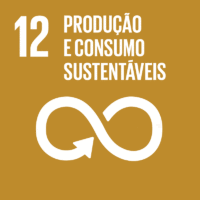Ciência_Iscte
Comunicações
Descrição Detalhada da Comunicação
Combining new and old: emergent business models in the food system transition
Título Evento
Global Forum of Intelectual Capital, Knowledge
Ano (publicação definitiva)
2019
Língua
Inglês
País
Portugal
Mais Informação
--
Web of Science®
Esta publicação não está indexada na Web of Science®
Scopus
Esta publicação não está indexada na Scopus
Google Scholar
Esta publicação não está indexada no Google Scholar
Esta publicação não está indexada no Overton
Abstract/Resumo
The research has been developed within a research project on Spatial Planning for Change (SPLACH) through an interdisciplinary approach. The analysis focus on food systems transition in a specific territory, the Lisbon Metropolitan Area. The transition of food systems towards a sustainable model has been under analysis and debate (Sutherland, Wilson and Zagata, 2014). This transition is related with structural changes, namely the emphasis on local production, short supply chains, and the preference for bio products.
In the case of food systems, the literature has highlighted the role of niche innovations (e.g. Wuskerke and van der Ploeg, 2004; Knickel et al., 2009), organic farms (Belz, 2004; Smith, 2007) and transitions within individual farms (Wilson, 2008).
The shift of the agrifood production is taking place through both the creation of entirely new businesses and the transition of individual farms towards organic production. In both cases, the new enterprises resort to a combination of old agricultural knowledge and techniques, new scientific knowledge regarding productive methods and new technological platforms for advertising and commercialization. These mixed sources permit the creation of interesting forms of new business models (Teece, 2010; Chesbrough, 2010), combining old and new. In addition to the agriculture domain, they exemplify how traditional industries can absorb/generate innovation, at technological and organizational levels, and become in line with the new knowledge-based era.
In the paper, we study the emergence of this form of business model by addressing the case of organic food production innovative initiatives in the Lisbon Metropolitan Area, namely Quinta do Arneiro. Primary data were collected through extensive interviews to key actors, namely entrepreneurs or leaders of the initiatives, and detailed visit/observation of the farms
Agradecimentos/Acknowledgements
Project SPLACH – Spatial planning for change
Palavras-chave
food system transition,organic farms,new business models,technological innovation,new marketing forms
Classificação Fields of Science and Technology
- Economia e Gestão - Ciências Sociais
Registos de financiamentos
| Referência de financiamento | Entidade Financiadora |
|---|---|
| POCI-01-0145-FEDER-016431 | European Regional Development Fund (FEDER), through COMPETE2020 - Competitiveness and Internationalization Operational Program (POCI) and by National funds through the Foundation for Science and Technology FCT |
Contribuições para os Objetivos do Desenvolvimento Sustentável das Nações Unidas
Com o objetivo de aumentar a investigação direcionada para o cumprimento dos Objetivos do Desenvolvimento Sustentável para 2030 das Nações Unidas, é disponibilizada no Ciência_Iscte a possibilidade de associação, quando aplicável, dos artigos científicos aos Objetivos do Desenvolvimento Sustentável. Estes são os Objetivos do Desenvolvimento Sustentável identificados pelo(s) autor(es) para esta publicação. Para uma informação detalhada dos Objetivos do Desenvolvimento Sustentável, clique aqui.

 English
English



